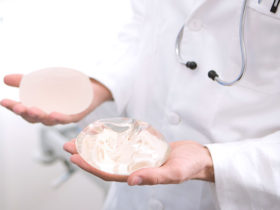Symptoms of acid reflux include burning in the chest, bloating in the abdomen, and a bitter taste in the throat. It is also known as acid indigestion or heartburn, which occurs when stomach acid leaks into the food pipe. Acid reflux is frequently identified as gastroesophageal reflux disease (GERD) if it occurs twice weekly.
Causes
Acid reflux occurs when your LES doesn’t tighten or close completely. This enables digesting fluids and other stomach contents to rise to your esophagus.
These factors that raise the risk of GERD include:
- The stomach’s upper portion protrudes into the diaphragm (hiatal hernia)
- Due to increased strain on the abdomen, being overweight or obese
- The stomach empties more slowly
- Pregnancy
- Connective tissue conditions
To know more about acid reflux, check the Acid Reflux Warrior online site. It is a know-it-all forum for acid reflux. You will find everything about the problem on the site. Feel free to know the good and bad of acid reflux. Also, find a solution to this problem and help yourself as well as someone suffering from it. Click Here to know more about Acid Reflux.
Food to Avoid During Acid Reflux
Dietary adjustments will significantly reduce acid reflux and allow you to avoid other therapies. The best way to reduce these symptoms is to treat the underlying cause of the pain that occurs after eating or drinking. Therefore, avoid the food list mentioned below to get a healthy life.
- Fried food – French fries potato chips, junk food,
- High-fat products – butter, whole-fat milk, cheese, ice cream, creamy sauces, and dips like mayonnaise, red meat, high fat sour cream.
- Spicy food
- Citrus food – oranges, grapefruit, limes, and lemons
- Tomatoes
- Pineapple
- Garlic
- Onion
- Beverage – coffee, tea, carbonated drinks, tomato juice, and any other citrus juice.
You can lessen your symptoms of acid reflux and your need for antacids by making changes to your food and eating routine. Overuse of antacids may also result in hypercalcemia, or too much calcium in the blood, which can have an impact on numerous organ systems. Consuming smaller portions may be helpful. If any particular fruits, vegetables, beverages, or foods make your symptoms worse, try to stay away from them. If it gets worse, consult your doctor about the best course of action.









